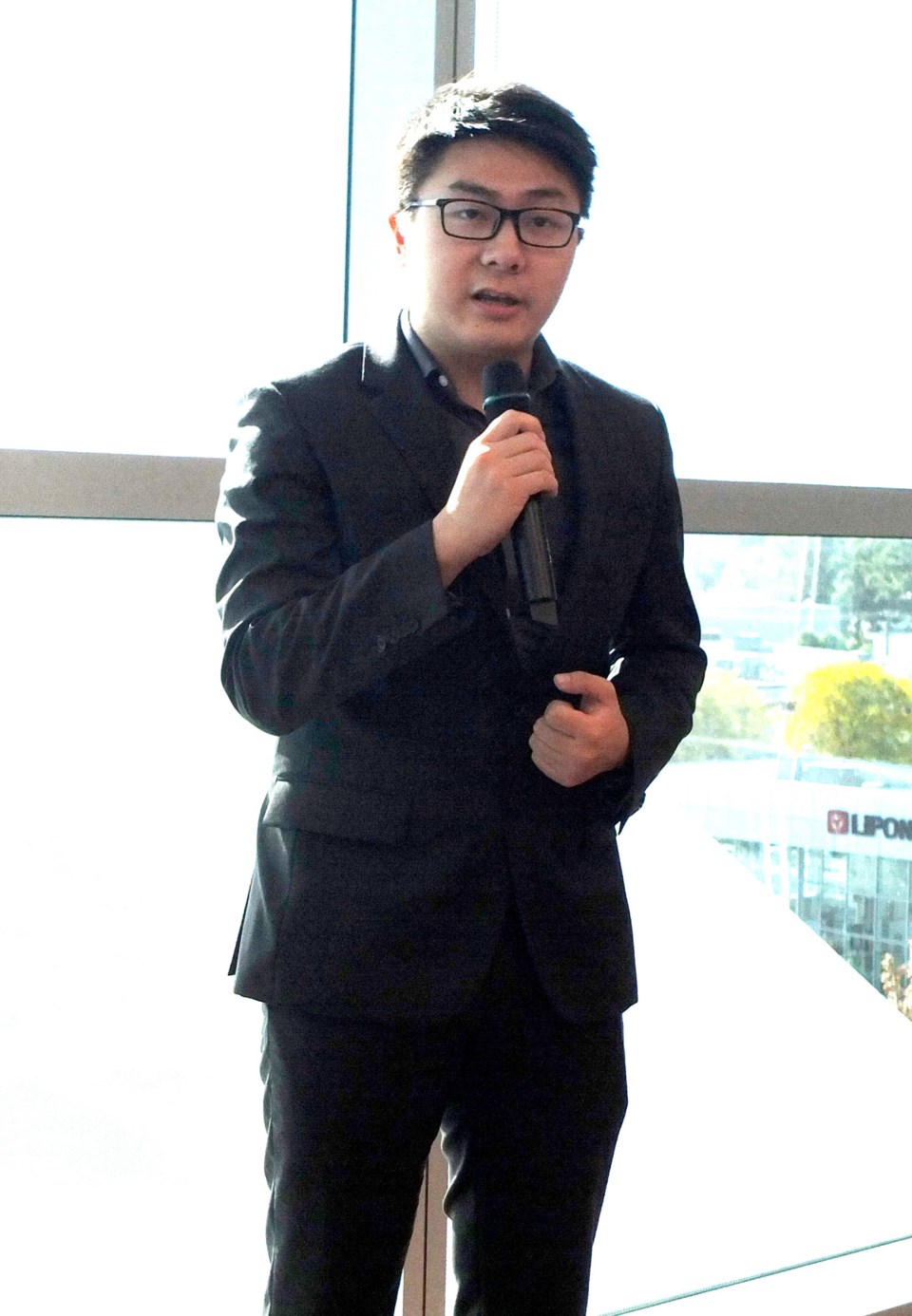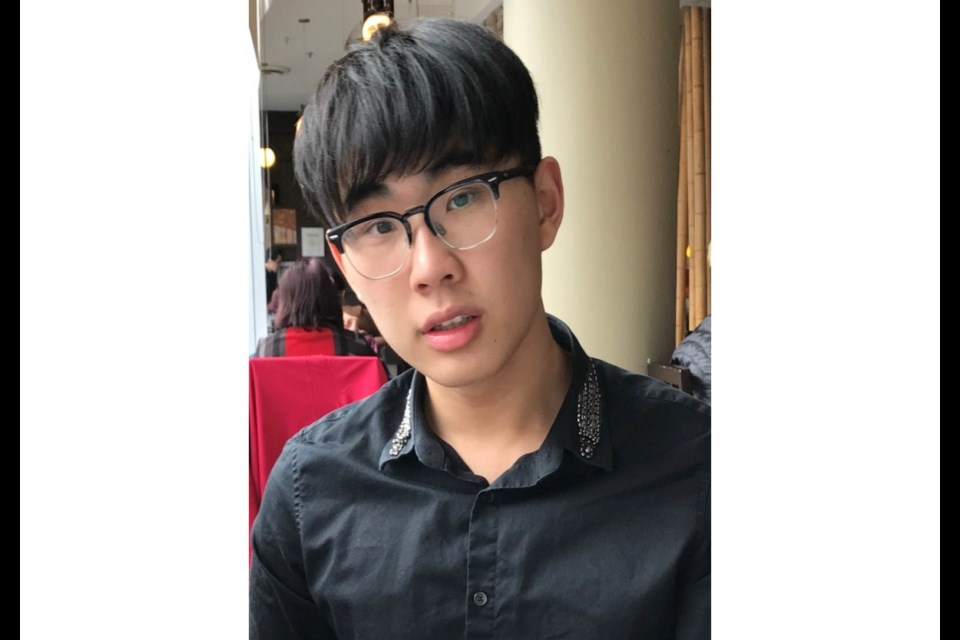The death of Linhai Yu, a 17-year-old Chinese high school student studying in Vancouver and reported missing in Richmond earlier this month, has drawn attention to a specific group — young international students studying here alone.
The Richmond News reported how Yu went missing on Sept. 11 after leaving friends near Bridgeport station. His body was later found near River Road in east Richmond on Sept. 22, with police saying the cause of death was not suspicious.
A press conference at Aberdeen Square last Thursday discussed Yu’s case and the mental health problems of a growing number of young, international students.
Attending the conference was Coun. Chak Au, Richmond School Board trustee Alice Wong and the Vancouver Chinese Consul’s Xuan Zheng.
“We need to reflect on the issues raised through this unfortunate case,” said Au.
More and more students are coming before university age, added Zheng.

Chinese Consul data shows that more than 53,000 Chinese students are currently studying in Metro Vancouver, many of whom are in Richmond schools.
“Incident rates among the group has been quite high in the last two years,” said Zheng.
In response to these trends, a “Care For Youth’s Growth Fund” was announced by volunteers at the conference with $8,000 start-up capital, including $2,000 from Yu’s parents, to thank people who helped look for their son.
SFU student and founder of Canadian Students Assistance Association, Jialin Guo, moved to Vancouver from China at age 16 to attend a high school in Delta. He explained that many parents send their young kids to high school, and even secondary schools abroad, hoping that they will have a better chance to be accepted by a good university.
However, leaving home at a young age, losing their original support system and facing the new language environment is not easy, said Au.
“The problem is big, so is the challenge for us,” according to Au.

Having a background in mental counselling, Au said he has met many international students who were thrown into a new environment before they were ready and had no coping strategies.
“After students come here, they often face difficulties with the studying system and the society’s expectations,” said Au.
“The studying here requires a lot of self-management and self-planning, which is very different from the systems in countries like China.
“Not to mention the loneliness they have to endure from being away from families and friends.”
Au also pointed out that some homestay families fail to provide enough care and support international young students need.
As an outgoing and resilient person, Guo said that his biggest challenge upon arrival was language.
“Local schools provide a purified English environment. The intention is to help international students slot into the language and improve their language skills,” said Guo.
“However, I think the communication between new international students and their tutors or counsellors, when they seek help, is limited.”
Guo said that despite parents’ good will, the number of those who made it through high school and onto a university or college was not big among those he knew.
“I’ve met students who failed exams and were sent back to China, some chose to go back home themselves after one semester, some indulged themselves in computer games to numb themselves,” Guo said.
He noted that many students’ parents have the money but don’t give them enough care, expecting that things will change after they go abroad, which is unrealistic.
“But it really depends on the person. I’m always independent and outgoing, and have found myself benefiting from studying abroad at an early age,” said Guo.
“I even wished I had come one year earlier, so that I could better integrate into society.”
Being independent and prepared for the life here, learning some life skills in advance and finding out more about local support is nessacery for students abroad, according to Guo.
“For those who don’t have a strong adaptability and resistance to pressure, studying abroad may not be the best option.”
After Yu’s incident, some people asked parents to accompany their kids abroad, but Guo said that most of his friends don’t agree on having parents come with them.
“What can they do here? It would be even harder for our parents to adapt to the society here than us,” Guo said.
“And they have nothing to do but to take care of us — that’s a lot of pressure on us.”
Guo said he hopes schools in Richmond will have more counsellors speaking Chinese or other languages since “efficient communication is important to help international students adapt to the environment here better.”
Trustee Alice Wong told the News that she will talk to the school counsellors to discuss the possibility of offering counselling services to students in need after school hours.



